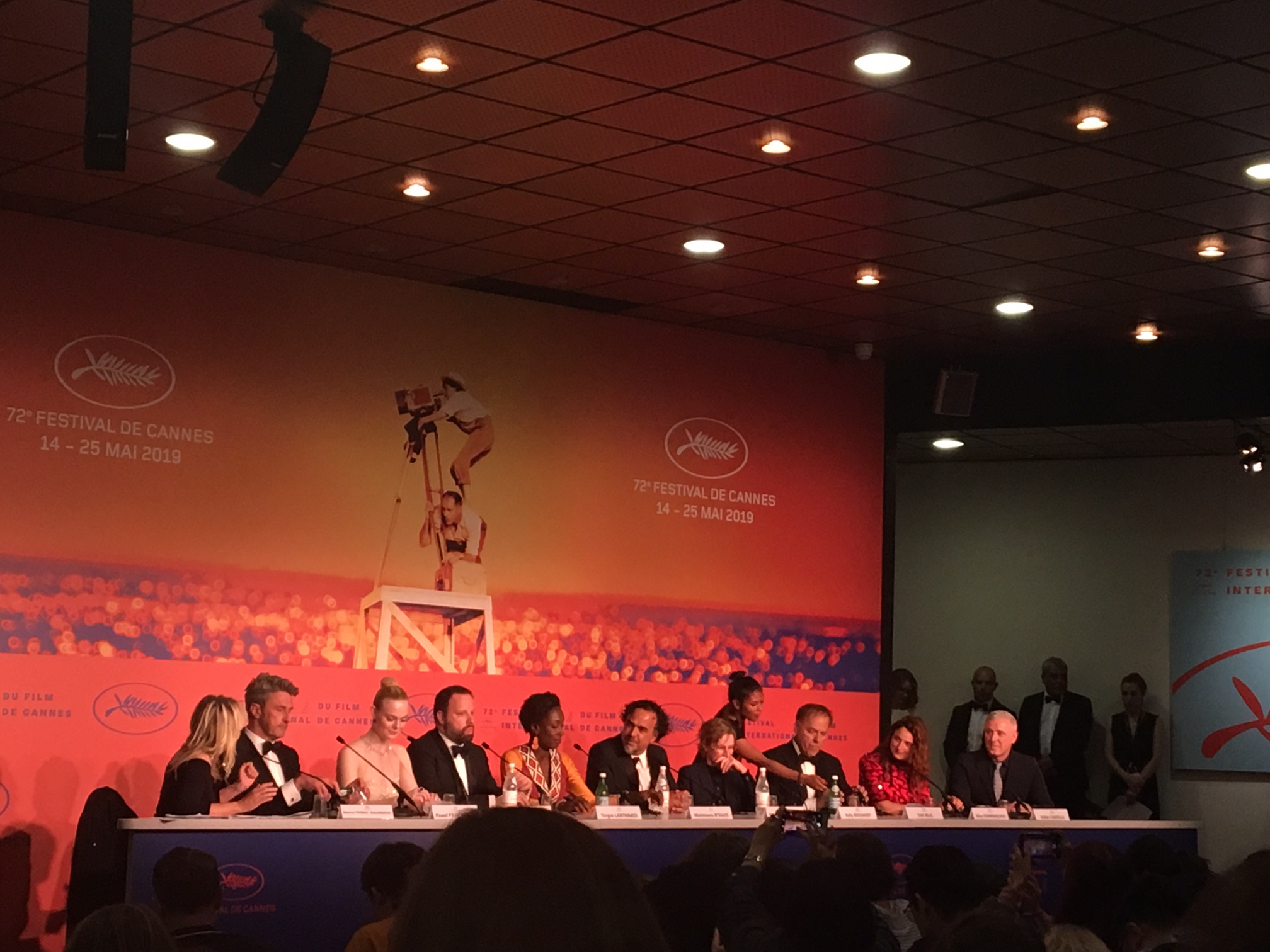“Parasite,” an acerbic class satire from the director Bong Joon-ho (“Okja“), took the Palme d’Or at the 72nd Cannes Film Festival, marking the first time that the Palme has gone to a film from South Korea. At the awards ceremony, the jury president, Alejandro González Iñárritu, said the jury’s decision to give “Parasite” the Palme was “absolutely unanimous.”
“I’m so surprised,” Bong said at the press conference that followed the awards ceremony. “I find it difficult to realize that this has actually happened.” He credited the directors Alfred Hitchcock, Claude Chabrol, and Kim Ki-young (the original 1960 version of “The Housemaid“) for their influences on “Parasite,” and while accepting his award earlier, cited Henri-Georges Clouzot as well. He also said that this year marked the 100th anniversary of Korean cinema.
It was an evening of firsts at the awards ceremony. The Grand Jury Prize (second place) went to “Atlantics,” whose director, Mati Diop, is the first black female director to have a feature compete at Cannes. Diop said that although it was her first full-length feature, it’s a film that she had been thinking about for many years.
One of the jurors, Alice Rohrwacher (“Happy as Lazzaro“), said that “Atlantics” had appealed to them in part because of its original perspective. “It’s a film that talks about a tragedy which we see daily,” she said. “It’s the tragedy of many young men and boys who die at sea, and it’s told through cinematographic symbols, but from the standpoint of the women who stay behind.” That led, she said, to “a broader understanding of the situation.”
In a surprise, the Dardenne brothers, Jean-Pierre and Luc, won the best-director prize for their film “Young Ahmed,” which was more wanly received than their previous work. Even so, Luc Dardenne pointed out that they had never won that particular prize at Cannes. “We were dreaming of it to a degree,” he said, and noted that he had called the Coen brothers one of the times when they had won that prize. The Dardennes can add today’s award to an imposing shelf of Cannes trophies that includes two Palmes d’Or (for “Rosetta” and “L'Enfant“), a Grand Jury Prize (“The Kid With a Bike”), and a screenplay award (“Lorna's Silence“).
The Jury Prize was shared by another first feature, Ladj Ly’s “Les Misérables,” and the Brazilian film “Bacurau.” “Les Misérables” is not an adaptation of Victor Hugo’s novel but a contemporary drama about the relationship between the police and impoverished teenagers on the outskirts of Paris. Ly said that he had invited French president Emmanuel Macron to watch the film, and that they would be organizing a screening very soon.
The award for “Bacurau”—directed by the former film journalist Kleber Mendonça Filho and Juliano Dornelles—came on the heels of an Un Certain Regard prize last night for another Brazilian film, Karim Aïnouz’s “The Invisible Life of Eurídice Gusmão.” Like Aïnouz, Mendonça Fihlo and Dorcelles seized the spotlight to draw attention to the political situation in Brazil, where the far-right politician Jair Bolsonaro assumed the presidency in January.
“There is a general feeling that funding for the arts is now officially cut and slashed,” Mendonça Fihlo said. “There are cuts for education. This is the moment we’re basically trying to negotiate as Brazilian citizens and artists.” When a journalist asked if, like Ladj Ly, Mendonça Fihlo thought it might be possible to invite Brazil’s president to see the film and discuss the funding of national cinema with him, Mendonça Fihlo replied, “I think that’s a beautiful idea.” He noted that “Bacurau” is a Brazilian-French co-production, with half of its funding coming from Brazilian public money, which, he said, “we believe we used honestly with a lot of hard work.”
He added, “I think Mr. Bolsonaro has every right to be invited and to watch ‘Bacurau.’ He might even like it.”
Pedro Almodóvar, who was widely thought to be overdue for the Palme d’Or, saw his “Pain and Glory” take only a best-actor prize for Antonio Banderas, who plays a thinly veiled version the director. Banderas dedicated the award to Almodóvar in an acceptance speech that he said would be a “paella” for its blend of Spanish and English. At the press conference afterward, Banderas listed all the awards he had been up for in his career and never won. “To get up there tonight is not very good news for my cardiologist,” he said.
Best Actress went to Emily Beecham for “Little Joe,” directed by Jessica Hausner, in which she plays a scientist working on breeding a plant that is said to make people happy. On stage accepting the award, Beecham noted that she had gotten on a plane this morning after being tipped off and hadn’t even packed her toothbrush.
Best Screenplay went to Céline Sciamma for “Portrait of a Lady on Fire,” in what may have come as a disappointment to the film’s fans, who thought that Sciamma might win the Palme. But at the press conference, Sciamma seemed gratified for the recognition for the film’s script, which she said was “heavily written,” and noted that only one scene was cut during editing. “To stand out in this way among my peers is a great source of satisfaction,” she said.












